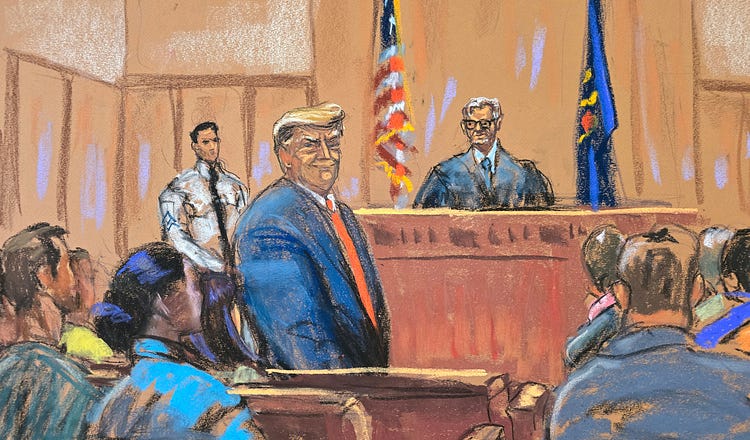The Trump Jurors Are America at Its Best

In this courtroom sketch, former president Donald Trump smiles to the jury pool as he is introduced to them at the beginning of his trial. (Jane Rosenberg/Pool Photo via AP)
Some predicted jury selection in the ex-president’s trial would take two weeks. Thanks to the civic-mindedness of ordinary Americans, it took three days.
340
If ever there was a jury that was easy to get out of, it was the jury for Donald Trump’s hush money trial in Manhattan. The former president arouses such strong feelings that during jury selection last week, Judge Juan Merchan knew it was a fool’s errand to try to vet each potential juror individually, as is normally done. Instead, he asked large groups…
Continue Reading The Free Press
To support our journalism, and unlock all of our investigative stories and provocative commentary about the world as it actually is, subscribe below.
$8.33/month
Billed as $100 yearly
$10/month
Billed as $10 monthly
Already have an account?
Sign In


